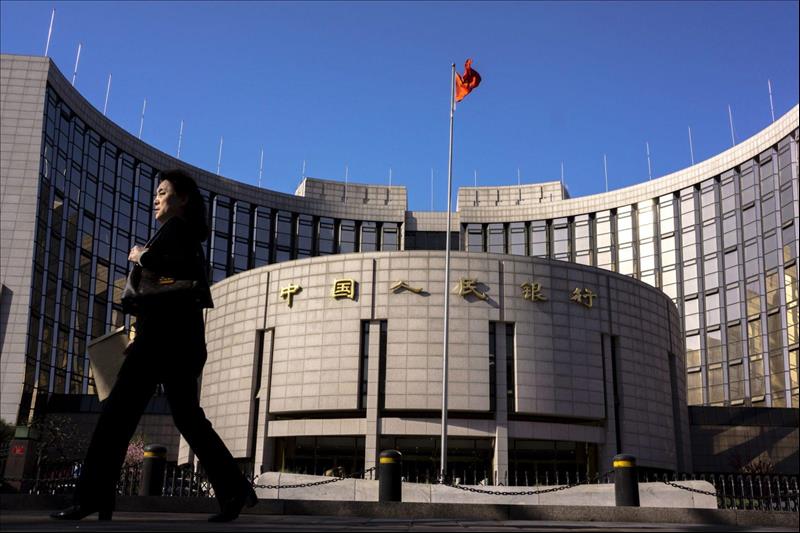(MENAFN- Asia Times) Chinese banks, namely lumbering state-owned lenders, have long lost their appeal with the nation's Generation Z and millennials at a time online creditors and debt-issuing outfits have proliferated.
Statistics from China's latest population census show the nation has 210 million youngsters and job starters born after 1990. Most of those living in urban centers and well-off coastal provinces are steeped in the culture of consumerism and well-versed in internet and mobile gadgets.
So going to a bank branch to open a savings account and applying for credit cards and loans seems all too old-fashioned to them.
A 2019 China retail banking report by market data cruncher Nielsen revealed that less than 45% of China's fresh graduates and job market newbies aged between 18 and 29 had credit cards, but 61% of them had started taking out borrowings from online financial service providers to buy phones, cosmetics or to amortize maturing debts.
The Industrial and Commercial Bank of China, the largest state-owned lender by asset size, said in its annual report that total credit card-related transactions had slumped by nearly 20% to 2.58 trillion yuan in 2020.

For numerous Chinese youngsters who have more online options, credit cards appear to be a thing of the past. Photo: Xinhua
Much of the credit-issuing business has been poached from brick-and-mortar banks by Alibaba's spinoff Ant Financial and its AliPay services, which revealed in the prospectus for its now-halted IPO that between June 2019 and June 2020 it had about 500 million users. Most of those youngsters had taken out consumption loans, lured by Ant's swift approvals and instant availability and AliPay's ubiquitous presence.
A People's Bank of China (PBoC) report on credit card penetration published in March and seen by Asia Times said that young people dreaded the lengthy and cumbersome application and review process to obtain a credit card when there was already an excess of internet lenders wooing them to binge on debt.
Generally, the generous credit and installments on offer from Ant and the like would far exceed the credit limit a bank would assign to a card applicant. So youngsters would usually be reeled in and give little heed to the hidden or higher interest rates that may come with such online unsecured personal loans and their deferments, the report noted.
It also noted that with the usually stringent repayment and affordability assessment in line with the PBoC's guidelines, traditional banks must cap credit limits for young cardholders and that in 2018 the average limit for cardholders aged between 21 and 30 stood at 25,000 yuan.
By contrast, Xinhua reported last year that on the app of the once-popular Beijing-based deposit-absorbing and peer-to-peer lending platform an applicant could easily take out a one-off loan of up to 80,000 yuan with just a few taps to input his or her ID number, contact details and home address.
Iqianjin now has 8.2 billion yuan of debt in arrears and is facing a watchdog investigation, as many of the platform's borrowers failed to pay back the money.

Ant has been luring young Chinese to take out loans online, but Beijing's ongoing scrutiny of its business is giving an opportunity to traditional banks to play catch-up to woo youngsters, encouraged by Beijing in its policy papers. Photo: Xinhua
The PBoC report also underlined the need for the banking sector to reach out to young clients to grow their retail businesses and bank on them as future income sources. It warned that lenders, especially state-owned ones, could not afford to lose the entire young generation even as most banks'' primary income was still earned from corporate business.
This is also moving in tandem with Beijing's ongoing regulatory crackdown on Ant and expose it to the same reserve requirement ratio as mainstream banks. There are also interdepartmental efforts to help banks cultivate a young client base.
Harsher policies and penalties are being announced against online money lending and debt collections, which may also work to the advantage of traditional banks.
A policy paper on domestic consumption, jointly promulgated in March by the State Council's National Development and Reform Commission and the China Banking Regulatory Commission, focused on the need for more personal credit from banks to spur spending by the working class and young job starters.
The paper said it was also a key initiative to diversify banks'' business and service portfolios and that, with banks issuing a lion's share of new credit for young consumers, watchdogs could better monitor the risks and help safeguard the public interest.
The document came after a February notice by the PBoC and ministries responsible for education, public security and internet supervision to further regulate online debt-issuing to college students and fresh graduates.

The People's Bank of China has its eye on Ant Financial. Photo: iStock
The notice said education should be stepped up to help young people resist the temptation to go on a borrowing spree and that Ant and a few P2P agencies still allowed to operate would be fined for trapping clients in usurious or revolving loans. More detailed implementation guidelines are now being drafted by the PBoC.
The ICBC's initiation into internet-based small and micro-loan services has gained currency among young spenders. It was launched in partnership with some popular brands and merchants like Xiaomi, Huawei, Lenovo and Uniqlo with installment options, instant cash rebates and points so consumers would no longer need to apply for loans from a third-party agency.
The bank added about two million clients aged under 30 to its client base in April alone, according to the China Business Times.
MENAFN20052021000159011032ID1102102696
Legal Disclaimer:
MENAFN provides the information “as is” without warranty of any kind. We do not accept any responsibility or liability for the accuracy, content, images, videos, licenses, completeness, legality, or reliability of the information contained in this article. If you have any complaints or copyright issues related to this article, kindly contact the provider above.